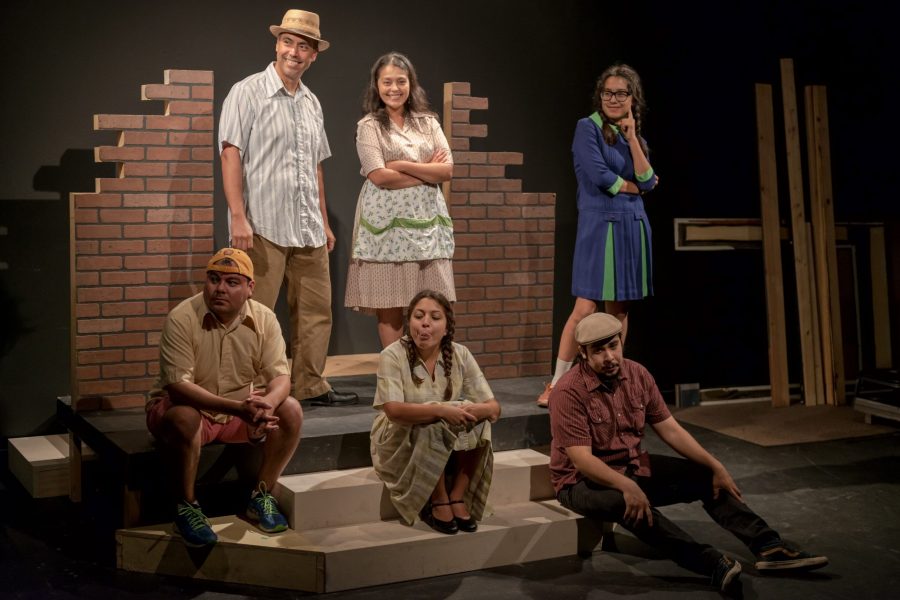“The House on Mango Street” is the story of a young girl, Esperanza, coming of age in a 1960s low-income, predominantly immigrant, Chicago neighborhood. Adapted from Sandra Cisneros’ beloved book by Amy Ludwig, the play’s protagonists are Esperanza as a young girl and as a middle aged woman. The two actresses share the stage to narrate the heartwarming and heartbreaking story of Esperanza’s childhood.
Young Esperanza is a sensitive girl, who “always cries when nuns yell at” her “even if they aren’t really yelling.” The older Esperanza celebrates the triumphant moments — like when her father wins the lottery and buys a new home for the family on Mango Street — and comforts her younger self during the painful moments of her adolescence.
As Esperanza tells the stories of her family, friends and neighbors, a recurring theme is the power of language. When a woman called Mamacita moves to Mango Street from her homeland to be with her husband, she is a prisoner in her own apartment because she does not speak English and is afraid to go outside. Her husband is not empathetic and demands she stop speaking Spanish; she is horrified when her baby’s first words are singing a Pepsi commercial in English and cries for days. Mamacita is miserable and lonely, longing for her home country.
Esperanza tells many stories in which the inability to communicate relegates her family and neighbors to the lower echelons of society. This is why she is so obsessed with telling stories and communicating effectively despite her shyness. For Esperanza, language is empowering. Writing is her hope for leaving Mango Street and what heals the trauma that occurs in her life.
“You must keep writing, it will keep you free” her dying tía tells her.
Another major theme of “The House on Mango Street” is the role of women in society. Throughout the play, Esperanza discovers the beauty and pain of navigating womanhood, from high heels and hips to sexual violence. She was named after her great-grandmother who was “wild and free” and refused to marry until her father put a bag over her head and dropped her off at her new husband’s home. She spends her life looking out of her window, longing for something more. Many of the women on Mango Street spend their lives “waiting for a car to stop, a star to fall, someone to save their lives.”
Esperanza’s story is one of coming of age, choosing your own destiny but remembering where you came from. “You will always be Esperanza, you will always be Mango Street.”
“House on Mango Street” presented by the Classic Theatre will run until Sept. 25. To purchase tickets visit classictheatre.org. The theatre offers a student discount. Bring tissues.













